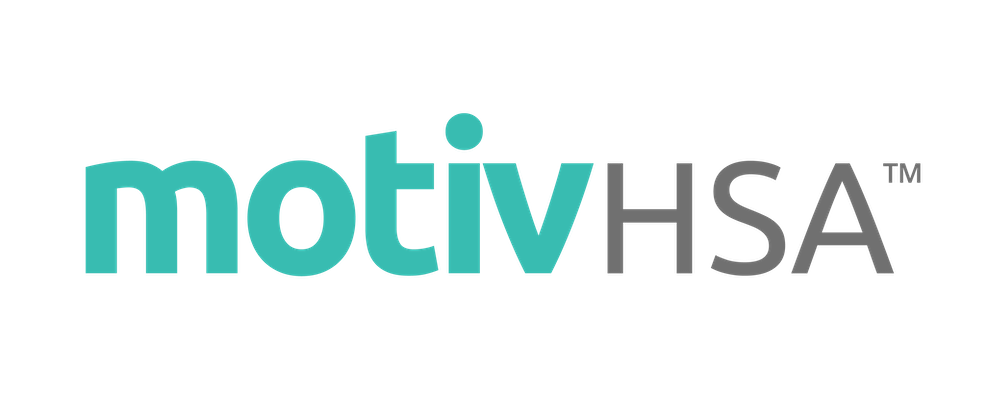FAQs
What Can I Pay for With my HSA?
Your HSA dollars can be used to pay any qualified medical expenses, including dental, vision, prescription, and even band-aids. A more specific list is defined in IRS Publication 502 found here.
Do I need to have health insurance to have a health savings account (HSA)?
Yes. You need to be enrolled in a High Deductible Health Plan (HDHP) to be able to contribute to an HSA. The minimum deductible for an HDHP is $1,600 for a single-member plan and $3,200 for a family plan.
What qualifies as a HDHP?
According to IRS guidelines for 2024, a High Deductible Health Plan (HDHP) is defined as a health insurance plan with a minimum deductible of $1,600 for individual coverage or $3,200 for family coverage. The deductible represents the amount you are responsible for paying out of pocket for medical expenses before your insurance begins to contribute. Additionally, the HDHP must have an out-of-pocket limit not exceeding $8,050 for individuals or $16,100 for families. The out-of-pocket limit denotes the maximum amount you will be required to pay in a given year for medical expenses covered by your insurance plan.
Does my HSA Expire
Your HSA dollars roll over year after year and stay with you through job changes and retirement. It’s also transferrable to a spouse after you pass without any tax implications. Finally, your HSA account acts like a 401K when you turn 65 and you can use the funds for non-medical expenses.
What happens to my HSA if I move jobs or retire?
Your HSA is yours forever. If you switch to Medicare or another insurance provider that doesn’t offer an HSA-qualified plan you can still use the funds in your HSA for qualified medical expenses, but you won’t be able to contribute to your HSA at that time.
Can I contribute to my HSA when I'm retired?
Yes. If you are retired but you are still on an HSA-qualified insurance plan you can still contribute to your HSA. Switching to a Low Deductible Health Plan or Medicare would forfeit your ability to contribute to your HSA.
Can I use the money in my HSA for non-medical expenses?
If you are under 65 you will not only be charged income tax for the money you withdraw for non-medical expenses but you will also be charged a penalty fee. Once your reach 65 years old you can withdraw money for nonmedical expenses and only be subject to income tax. Funds used only for medical expenses will remain tax-free.
Can I use my HSA to pay for voluntary cosmetic surgery?
Your HSA can be used as a tax-free medical expense if it is prescribed by a physician as medically necessary.
Can I roll the money from my IRA into my HSA?
Yes. You can rollover your IRA into your HSA one time. Your IRA rollover amount will count toward your annual HSA contribution limit. You cannot however roll money over from your HSA into an IRA.
Does the money in my HSA earn interest?
Yes. Not only is the money in your HSA account able to earn interest, but the interest earned is tax-free! MotivHSA calculates compounds, and credits interest on a monthly basis, based on applicable rates for different tiers of your account balance.
Can I invest the money in my HSA?
Yes. Once your MotivHSA balance exceeds $2,000 you can invest your HSA dollars.
How much money can I contribute to my HSA?
The HSA contribution limits are $3,650 for self-only coverage and $7,300 for family coverage. Those 55 and older can contribute an additional $1,000 as a catch-up contribution.
What can I pay for with my HSA?
The money in your HSA can be used to pay for any qualified medical expense. This includes, but is not limited to medical, dental, and vision expenses. A more detailed list can be found here.
Can I take money out of my HSA at any time I want?
Yes. If you have a qualified medical expense you can withdraw money from your HSA tax and penalty-free. If you withdraw money for any purpose other than a qualified medical expense you will have to pay income taxes and a withdrawal penalty. If you are 65 or older you can use HSA funds for any expense without penalty, you will only need to pay income tax for the amount withdrawn. Funds taken out for medical expenses will remain tax-free.
Can I access my HSA online?
Yes. Login through member.motivhsa.com and see your account balance, claim history, and electronic statements. You can also request reimbursements, pay providers, and manage personal information. Get started today.
How do I contact MotivHSA?
Call us at 844-234-4472
FAQs
What Can I Pay for With my HSA?
Your HSA dollars can be used to pay any qualified medical expenses, including dental, vision, prescription, and even band-aids. A more specific list is defined in IRS Publication 502 found here.
Do I need to have health insurance to have a health savings account (HSA)?
Yes. You need to be enrolled in a High Deductible Health Plan (HDHP) to be able to contribute to an HSA. The minimum deductible for an HDHP is $1,600 for a single-member plan and $3,200 for a family plan.
What qualifies as a HDHP?
According to IRS guidelines for 2024, a High Deductible Health Plan (HDHP) is defined as a health insurance plan with a minimum deductible of $1,600 for individual coverage or $3,200 for family coverage. The deductible represents the amount you are responsible for paying out of pocket for medical expenses before your insurance begins to contribute. Additionally, the HDHP must have an out-of-pocket limit not exceeding $8,050 for individuals or $16,100 for families. The out-of-pocket limit denotes the maximum amount you will be required to pay in a given year for medical expenses covered by your insurance plan.
Does my HSA Expire
Your HSA dollars roll over year after year and stay with you through job changes and retirement. It’s also transferrable to a spouse after you pass without any tax implications. Finally, your HSA account acts like a 401K when you turn 65 and you can use the funds for non-medical expenses.
What happens to my HSA if I move jobs or retire?
Your HSA is yours forever. If you switch to Medicare or another insurance provider that doesn’t offer an HSA-qualified plan you can still use the funds in your HSA for qualified medical expenses, but you won’t be able to contribute to your HSA at that time.
Can I contribute to my HSA when I'm retired?
Yes. If you are retired but you are still on an HSA-qualified insurance plan you can still contribute to your HSA. Switching to a Low Deductible Health Plan or Medicare would forfeit your ability to contribute to your HSA.
Can I use the money in my HSA for non-medical expenses?
If you are under 65 you will not only be charged income tax for the money you withdraw for non-medical expenses but you will also be charged a penalty fee. Once your reach 65 years old you can withdraw money for nonmedical expenses and only be subject to income tax. Funds used only for medical expenses will remain tax-free.
Can I use my HSA to pay for voluntary cosmetic surgery?
Your HSA can be used as a tax-free medical expense if it is prescribed by a physician as medically necessary.
Can I roll the money from my IRA into my HSA?
Yes. You can rollover your IRA into your HSA one time. Your IRA rollover amount will count toward your annual HSA contribution limit. You cannot however roll money over from your HSA into an IRA.
Does the money in my HSA earn interest?
Yes. Not only is the money in your HSA account able to earn interest, but the interest earned is tax-free! MotivHSA calculates compounds, and credits interest on a monthly basis, based on applicable rates for different tiers of your account balance.
Can I invest the money in my HSA?
Yes. Once your MotivHSA balance exceeds $2,000 you can invest your HSA dollars.
How much money can I contribute to my HSA?
The HSA contribution limits are $3,650 for self-only coverage and $7,300 for family coverage. Those 55 and older can contribute an additional $1,000 as a catch-up contribution.
What can I pay for with my HSA?
The money in your HSA can be used to pay for any qualified medical expense. This includes, but is not limited to medical, dental, and vision expenses. A more detailed list can be found here.
Can I take money out of my HSA at any time I want?
Yes. If you have a qualified medical expense you can withdraw money from your HSA tax and penalty-free. If you withdraw money for any purpose other than a qualified medical expense you will have to pay income taxes and a withdrawal penalty. If you are 65 or older you can use HSA funds for any expense without penalty, you will only need to pay income tax for the amount withdrawn. Funds taken out for medical expenses will remain tax-free.
Can I access my HSA online?
Yes. Login through member.motivhsa.com and see your account balance, claim history, and electronic statements. You can also request reimbursements, pay providers, and manage personal information. Get started today.
How do I contact MotivHSA?
Call us at 844-234-4472
Everything You Need of Know of MHSA Investments
King of HSA Investments When combined with a high-deductible health plan, Health Savings Accounts (HSAs) offer a unique advantage by allowing you to...
The Power of HSA Investments
Health Savings Accounts (HSAs) have proven to be versatile financial tools, not only providing a tax-efficient way to cover medical expenses but...
Use Your HSA Card Effectively
HSA Cards link directly to your Health Savings Accounts (HSAs). HSAs have become a popular tool for individuals looking to manage their healthcare...



